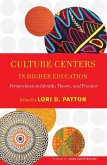Women's centers in universities and colleges in the United States are flourishing as they transform individuals and institutions, providing education that combines the academic and activist, and develop leadership that is rooted in collaboration. This handbook provides insights from women's center directors at institutions across the country on how best to build a women's center that can improve the quality of women's experiences in college. The best centers aid universities and colleges in responding to particularly difficult challenges in higher education related to gender. Practical information is included on specific programs, providing an overview of successful centers. The institutional environments examined are diverse, ranging from research universities to community colleges, from large state-supported land grant institutions to small private liberal arts colleges. Chapters focusing on the structural issues of creating and transforming a center explore how to create crucial components of women's centers, such as leadership development programs, distinguished artists and scholars series, information and referral services for non-traditional students, women-centered counseling services, resource libraries, publications, and internship programs that involve both academic and experiential learning. Other chapters focus on social issues and the intransigent and wide-ranging challenges facing centers, including for example, sexual harassment, racial divisions among students, the climate for women in the sciences, and the need to build a stronger sense of intellectual community outside the classroom. The directors of women's centers around the country respond to these and other problems, and provide an overview of some of the best practices related to responding to a number of very difficult challenges in higher education.
Hinweis: Dieser Artikel kann nur an eine deutsche Lieferadresse ausgeliefert werden.
Hinweis: Dieser Artikel kann nur an eine deutsche Lieferadresse ausgeliefert werden.








